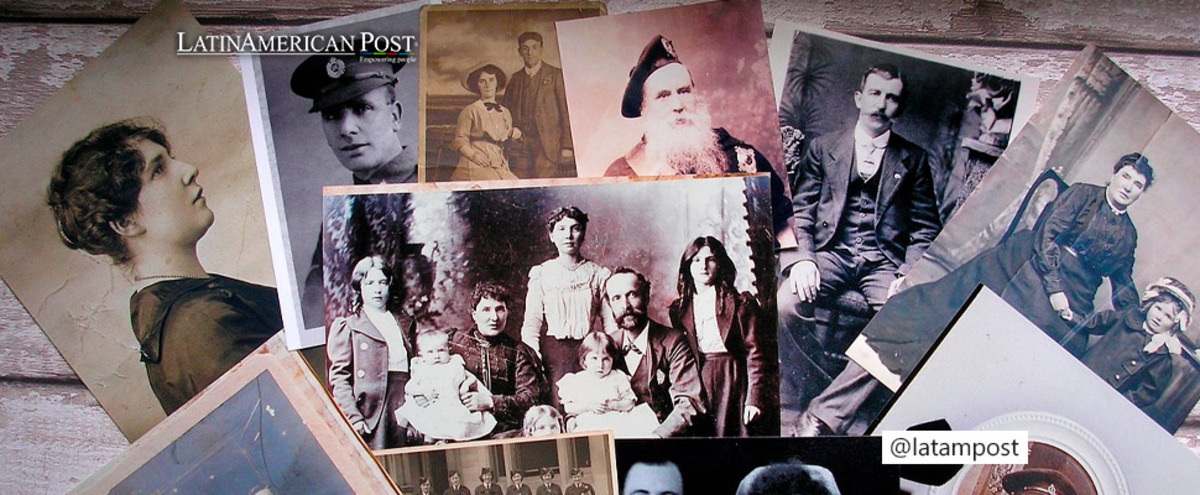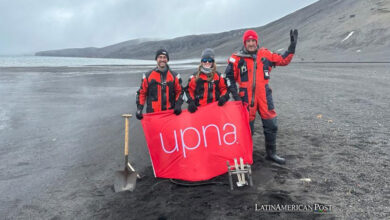Genealogy Test to Discover the Origin of the Ancestors. How does it Work?
DNA tests have captured the attention of millions of people around the world, and Latin America is just a little behind. More and more individuals seek to discover their roots and learn about the history of their ancestors through this genealogy test.

Photo: Pixabay
LatinAmerican Post | Jorge Vuelvas Lomeli
Listen to this article
Leer en español: Test de genealogía para descubrir la procedencia de los ancestros ¿Cómo funciona?
Have you ever wondered where your ancestors came from and what mysteries hide your genes? DNA tests, which allow genealogy tests, have established themselves as a tool of great interest for those seeking to discover the origin of their ancestors and better understand their genetic makeup in Latin America. Through the analysis of mitochondrial DNA and chromosome, these tests allow the tracing of the family tree and offer valuable information about the cultural and genetic diversity of the region. Countries like Colombia, Mexico, and Argentina have experienced growth in demand for these services, offered mainly by market-leading companies such as Ancestry.com, MyHeritage, and FamilyTreeDNA.
We recommend you read: Have we stopped evolving as a species?
Exploring Latin Roots
Latin America is known for its cultural richness and genetic diversity. For example, a study published in the journal "Science" in 2014 showed that Mexico has vast genetic and cultural diversity. Most of the Mexican population is mestizo, with a mixture of indigenous, African, and European ancestry, highlighting the importance of understanding our genetic makeup and the history of our ancestors.
In Argentina, DNA tests have played a crucial role in searching for and reunifying families affected by the Argentine dictatorship (1976-1983). In their tireless struggle to find the grandchildren that were taken from them, the Grandmothers of Plaza de Mayo use DNA testing to prove paternity and confirm the identity of these grandchildren.
Although we do not find specific examples in Colombia, Juan Camilo Chacón Duque, a geneticist in Marinilla, Antioquia, stands out; she became a benchmark in evolutionary genetics and a pioneer in the joint use of ancient DNA and genomics in the country. In his doctoral thesis, he investigated the genetic history of more than 6,000 people from five Latin American countries. He found signs of past accounts that were not documented, such as the migration of Jewish converts to Christianity and practitioners of Judaism to the New World during the time of Cologne.
The Dark Side of Popularity: Privacy and Reliability
However, despite the popularity of genealogy testsC, concerns have also been raised regarding privacy and the integrity of the results. Experts caution that the information in the results may need to be more accurate, as it is based on comparisons with contemporary people in the company's database. In addition, privacy policies are often inadequate, raising concerns about the misuse of genetic information.
DNA tests require users to mail in a saliva sample for testing. Although the information is treated confidentially, there is the possibility that companies share genetic data with pharmaceutical companies or various institutions, even without explicit consent. It is critical that users carefully assess whether sharing their genetic material with a private company is right for them and that they are aware of the associated risks.
Discovering our Genetic Predispositions
Beyond genealogy, DNA testing can also shed light on predispositions to genetic diseases such as stroke, Parkinson's, and cancer. While these results can help take preventive measures, it is crucial to remember that they should not be considered a medical diagnosis nor a substitute for professional advice. Environmental, socioeconomic, and lifestyle factors also influence our health.
DNA kits are available at increasingly affordable prices in pharmacies, specialized companies, and online platforms such as Amazon. Companies like My Herytage (shipments to various countries) or Ancestry (available in Mexico) are already world famous. However, each country has several different laboratories already offering this service. Despite their growing popularity, it is vital to approach the results cautiously and keep an open mind when interpreting them, as their reliability may be questionable.
Will these Tests Help Us Overcome Racial Stigma?
DNA testing has proven to be a powerful tool for exploring our roots and understanding genetic diversity in Latin America. But the question begs: could these tests help us overcome racial stigma and change how we relate to our heritage?
Advantages: Connection and Self-Awareness
A relevant advantage of DNA tests is that they promote self-knowledge and connection with our cultural and family roots. By revealing the mix of ancestors that make up our identity, these tests can generate empathy and respect for the different cultures and ethnicities that have shaped our personal histories. Furthermore, by identifying our genetic diversity, we can celebrate our differences and understand that race is a social construct and not an absolute determinant of our identity.
Disadvantages: Inaccuracies and Stereotypes
On the other hand, there are concerns about the accuracy of the results and how they may perpetuate racial and ethnic stereotypes. Because they are based on comparisons with people in the company's database, the results may need to be more accurate and accurately reflect our genetic history. Furthermore, by simplifying our roots to percentages of ancestry from different regions, we risk fostering a simplistic view of racial and ethnic diversity rather than recognizing its complexity and richness.
In conclusion, DNA testing has the potential to help us overcome racial stigma by fostering a connection to our roots and celebrating our genetic diversity. However, it is crucial to approach the results with caution, be aware of this evidence's limitations, and not allow the information obtained to reinforce racial and ethnic stereotypes. The key lies in using these tests as a tool for self-knowledge and mutual understanding, promoting empathy and respect for our rich cultural diversity in Latin America.




